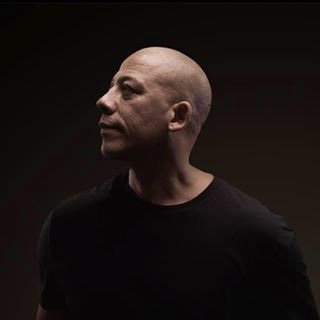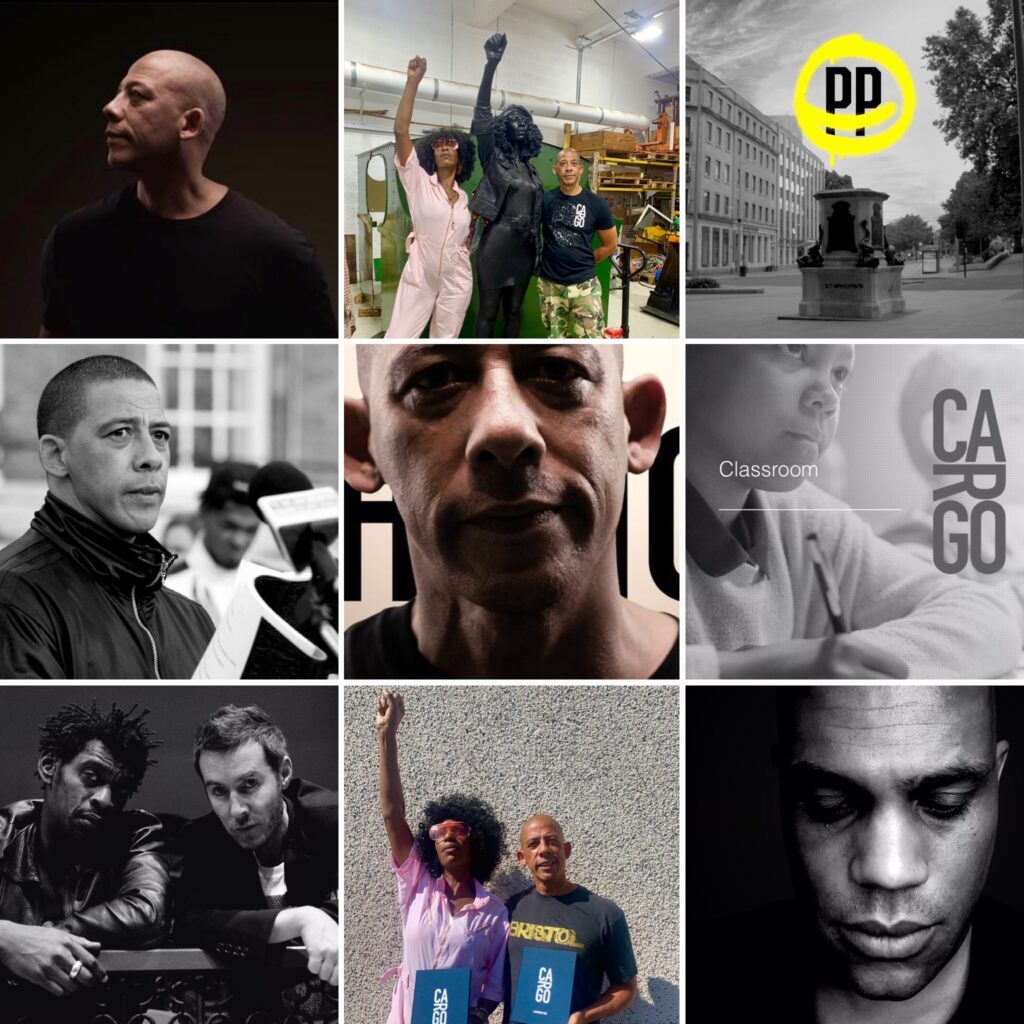
I had the pleasure of interviewing Bristol based poet, Lawrence Hoo. It was a truly enlightening conversation and we discuss all things Race, Class and Education. You can find out more about his latest projects at www.lawrencehoo.com or more about the Cargo project at @cargomovement on Instagram and social media. (Becky Johnson)
Read Part 1 below to see what he had to say:
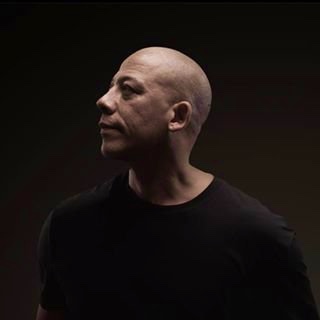
Hi Lawrence, it’s lovely to meet you, can you give our readers some background information on yourself please?
Hi, my name is Lawrence. I live in Bristol, well I’ve lived in Bristol for almost my whole life, and I’m a poet.
I was born in Birmingham and grew up in mostly marginalised communities in Bristol. I spent a lot of my youth in and out of the care system. I went to 6 secondary schools and after that, I didn’t have any form of education. I was a feral kid on the street from the age of 6 and a runaway. When I was 19, I had cancer and I went through a bad stage of my life after that. I thought that the cancer was going to kill me anyway and I went back to living on the road. And then at 30, I became a father for the first time. To be honest, it scared the living daylights out of me. But that’s about it vaguely.
I wanted to see if I could make myself a better person and make more of my life. So I went back and re-educated myself and began to teach others how to use computers. I did that for four years and got burned out. So, I started to do my poetry.
My poetry came from a place of rage and from questioning why the authorities were allowing situations to occur in these certain environments rather than in the rest of Britain. All the laws that need to protect people exist but for some reason the action isn’t being taken to enforce them.
A point of that was when my partner was picking up our young son from nursery in Saint Pauls and she was approached. We then, campaigned against paedophiles being allowed to stay in the hostel which backs onto our nursery. It came out and we succeeded to make Bristol safer.
And that’s why I use poetry as a platform to try and make these changes happen.
I acknowledge that a lot of your previous work and ethos is grown around Bristol and the things that surround you there. I know that similarly to Tiger Bay in Cardiff, Bristol is going through a huge gentrification process. I was wondering on what not only your thoughts are on this but also what impact you have already seen from this?
I think is painful to see the gentrification. It goes back to those laws again., they hold all of these problems in communities.
In Saint Pauls there would be safe houses to protect those from people who have committed crimes as well as hostels for those who have committed crimes. There was drug rehabilitation centres and parole offices, but they were put next to the only place in Bristol, where you could legally sell drugs on the streets. They put the drug users next to the drug dealers, they put the people at risk from sexual crime next to those who have committed sexual crimes and they put prostitution on the streets by schools.
They took all of these issues and put them into an area which was where the African Caribbean communities are, so they often associate these problems with the African Caribbean communities. But, if we take things back to sherlock Holmes times, there were people smoking opium and he would investigate the murders of prostitutes. All these problems came along a long time before we came to Britain.
The children who are growing up in Saint Paul’s, because of the violence, lose their innocence way too young. That’s what I find heart-breaking. The way Saint Paul’s was policed (well actually I say policed but it was more so ‘contained the issues so they didn’t affect the other communities’) means the influence and protection of those other communities, is so different to what happens in Saint Paul’s.
Building prices are going up which is forcing working class people to move out of the areas which they grew up in. With Saint Paul’s it’s the council assets. The things that the working class need the most will be the first things to go. There’s no chance for people to come back into the communities they’re from. And with the services are removed, the communities become very affluent causing the communities to shift and there is nowhere for those that grew up there to live in the area.
So adding onto that, what do you think of the increase of students and the spreading of students away from Gloucester road and into Saint Paul’s? Is this bringing a positive impact, or is it doing the opposite and removing opportunities for those that are from the area?
It was always going to be a natural progression that Saint Paul’s was going to be reclaimed because of where it is located. It’s just an expansion of an affluent area but, at the same time, all it has done is push out the communities that was there before. It just benefits one community and marginalises another. It’s heart-breaking.
I’ve grown up there and lived there. It’s always been my safe spot. Regardless of all of the chaos of the city, if you’re from African Caribbean descent, it’s a safe place. It’s just devastating. Gentrification is devastating. I don’t see any positives from gentrification.
As a homeowner, gentrification has increased the value of my property. But there’s not much of my community left. I feel like a stranger. Some people say yeah but you can make money from it, but I’ve lost my home. I’ve got my house, but the community is my family. That whole family aspect of life is gone. My home is gone.
I don’t think people actually understand what it’s like to lose that familiarity, that security and that family. What it’s like when its gone.
The university of Bristol is such a huge entity in the city, and it needs to do more. I’m working with the university now, but I want to work with it to help collect the wider communities of the city and to support them. Everybody says black lives matter. But working-class people’s lives matter.
The whole city is classist.
Its problem the main issue of the city. There’s the golden circle for a mile around the city which makes a very affluent area. But one thing that’s very rare to hear in this area is a Bristolian accent. A lot of Bristolians are cast out of opportunities here. I believe it’s time for those big institutions to connect and to gather communities to raise their platforms with them. A part of Bristol is accelerating so quickly but it is leaving a huge part of Bristol behind.
So your latest project, the Cargo project, has recently received National lottery funding (congratulations). Why was the Cargo project initiated and how was it developed into the current version in which it sits?
In 2007 I did a collection called HOO stories. Which was a response to the abolition to the trans-Atlantic slave trade. It was an opinionated set of poems that held a non-Eurocentric view. It was holding up a light to the actions of Europeans and gave a positive light to people of African descent, allowing it to be seen from an African-centric view. It pointed out people that had contributed greatly to society but who had pretty much been emitted from history.
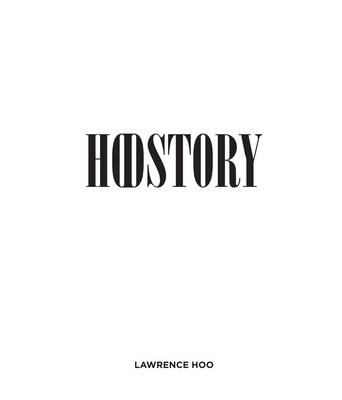
Cargo was an extension of this. Looking at what people have been told has been done and then showing what has actually been done as well as looking at what you have actually done yourself. Cargo showed African resilience and African’s generating opportunities.
The beginning of the collection probably looks at the first 400-500 years of the trans-Atlantic slave trade, when people were just classed as cargo. Covering that journey and how they were put in the conditions that made them in slaves as well as the achievements of those of African descent. It starts in Bristol and then goes into the slave trade, the Hacienda revolution, H Samuel Sharp, and the uprisings and then continues with those that fought against and contributed to civilisation. An empowering narrative for what is usually, a very disempowered history.
It was done because I live in Bristol and you cannot get away from Bristol’s history. Every building you look at is made from Bath stone which came from that industry. I live in a city that’s very painful to live in.
As a young black man, I couldn’t get my head around the fact that men didn’t fight to defend their wives and children. I always thought, my people didn’t fight then but I can fight now. When I realised that they did fight and rebel, that changed for me. I thought that people were so dehumanised that they stopped seeing themselves as human and it breaks my heart. But then, you realise that they did fight and what happened to them, was crimes.
But they saw that evil, and they fought and fought and fought. I wanted my children to not grow up with the same anger that I had and that’s where the collection came from. I want to give the children of Britain the opportunity to not be me.
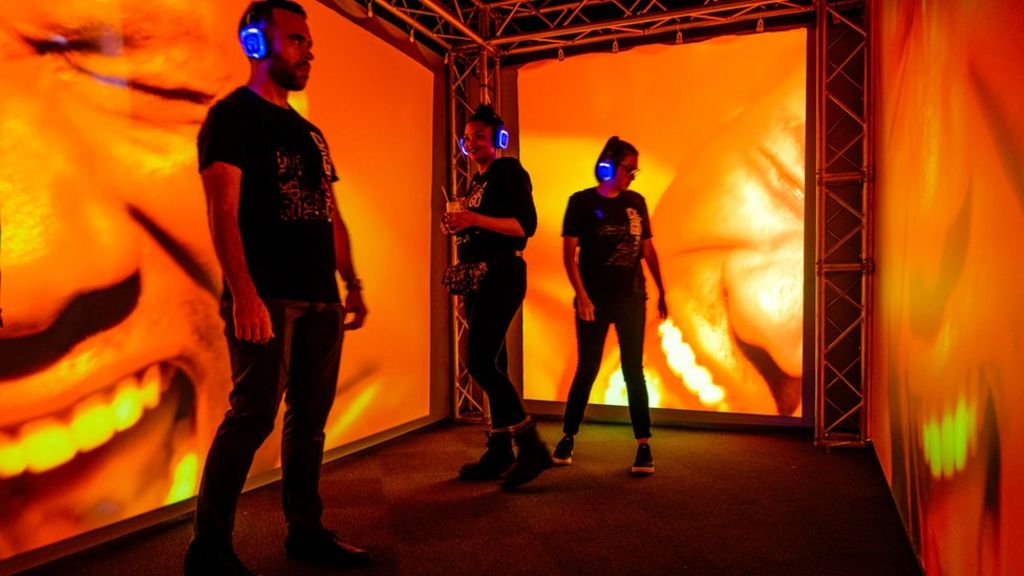
It started off as an installation as four different shipping containers on College Green (Bristol). The idea of using shipping containers removed the permissions needed to display this information e.g. the approval of museums and galleries. We didn’t want to have to prove that our work had value to other institutions. So that although there were permissions needed, it was a lot more flexible than the others. But because of Covid-19, the idea of putting people in a confined space walking around stopped being possible.
Covid-19 took the installation and we thought, how do we keep this moving forward? How can we make it more digital? We wanted to give people accessibility to information. So we went forwards with the Classroom project. The installation although on hold, is still in process.
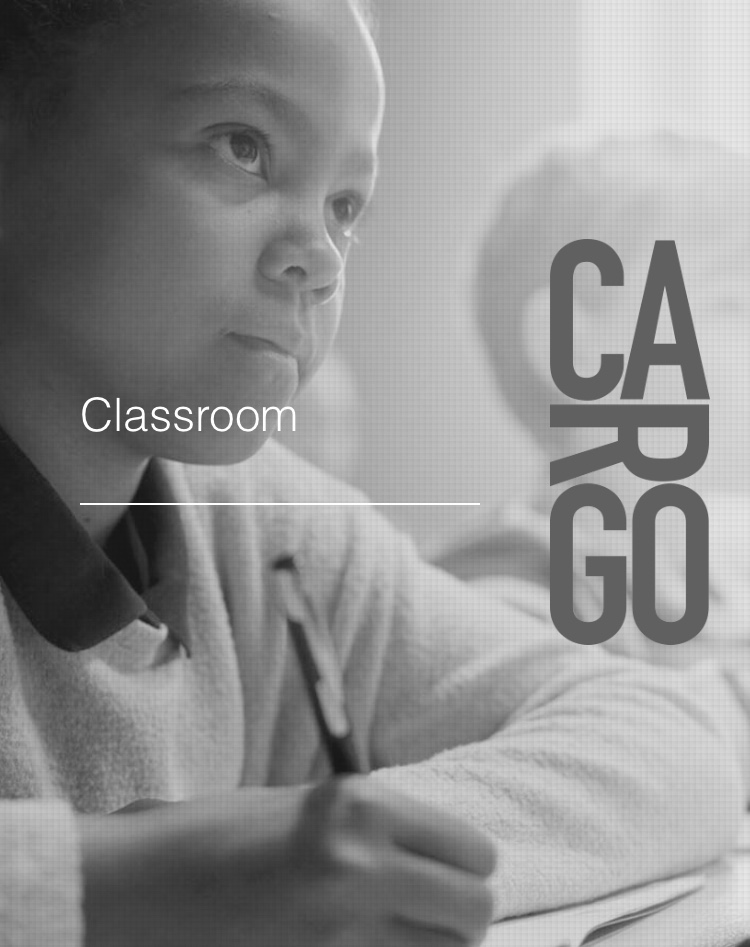
The Cargo Classroom project is so important and it’s brilliant that you’ve been able to kick off something as monumental as this. What do you believe is the next step to get this information into mainstream education?
We produce a product that they feel they can’t not use, that’s the first step. Making something that people want to use and then work towards getting that into the curriculum.
This is the crazy thing, for years, we’ve been pushing and pushing but because of what’s happened in the last 6 months, people have actually come looking for us. That has been a huge change. The most important thing for us to do, is to keep focussed on what we have already been doing and to not get involved in loads of things. This is what we were doing before we got national attention. We need to make sure we deliver what we set out to deliver before we then look at what the other opportunities are.
The funny thing is, I’m so excited for what were doing. The possibilities are insane. This is the right time, we have the right product and we have the willpower to push it.
The attention will soon fall off if people aren’t prepared to put the work in. What is happening currently isn’t new, we had a global black lives matter campaign 4 years ago. And literally, outside of America, in a few weeks, it had gone.
We don’t need huge numbers as long as we keep pushing the right buttons. The group who did the protest a few months ago are still going and are making sure its not going anywhere. This young group, I believe they’re going to keep it going and make some change, for real.
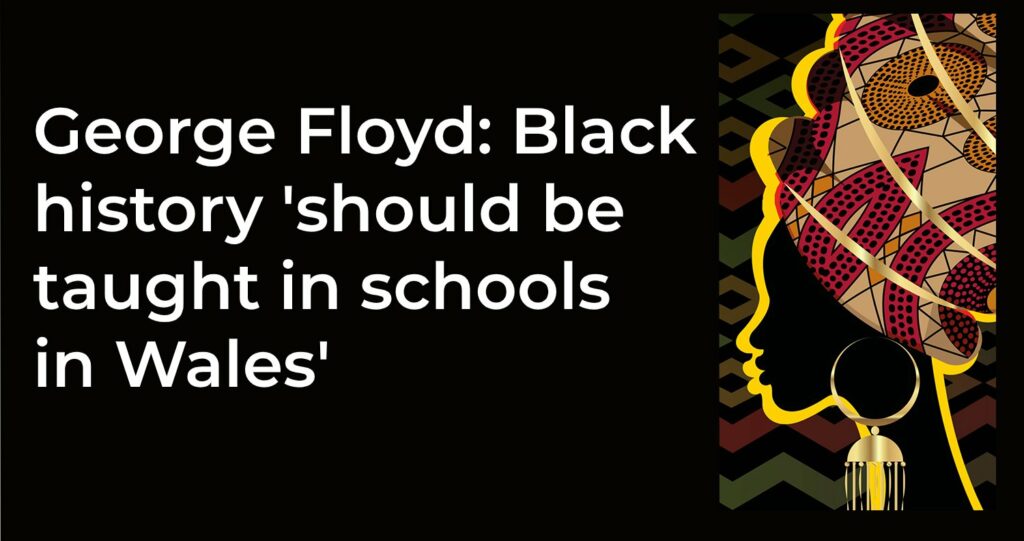
Here in Wales, where Get the Chance is based, there is a campaign calling for Black history to be taught to Welsh pupils in school which has received more than 30,000 signatures within days of it being set up, educating pupils on subjects like British colonialism and slavery.
Whilst many ministers in government (both in Wales and England) acknowledge the need to shine a light on how colonisation has been glorified, why do you think the latest bill passed through parliament was rejected?
Through fear.
I think a lot of this information has been oppressed for so long that if too much of the information came out too quick, it would undermine the whole of the UK government. The whole industrial revolution was built off the back of Africans.
What is actually owed? People ask are there reparations for the past? The gains are still received today. Companies are still using Africa as a resource. They gave the countries back their independence and to the people they gave back their freedom, but it was only on the surface level that they gave it back. They didn’t give back the land or the wealth that was generated from the land. Africa is not just filled with Africans. There are huge debts to be paid.
How would the English pay off the compensation that is needed? They could give them their natural resources, and then the interest of anything earned off those resources, and then, maybe, Europe would need the aid and Africa doesn’t. The economic balance would collapse.
We need to teach people their worth, their value and what was truly stolen from them. Not only their names, identities and homes were taken but so was the ability to nourish themselves from their ancestral background.
They’re afraid to teach the history because what happened was absolutely appalling and everyone would see that. England played its part right through the trans-Atlantic slave trade to the South African apartheid in the 1990s… The 1990s.
There’s just a lot of fear. With the crimes that were committed, there’s a lot of responsibility. People think Africa contributed a lot less to society than it has because a lot of African history has been emitted. But over time the internet will allow people to get this information, which before would have been through privilege. This will add some truth to history. And European governments will have to be accountable for their actions.
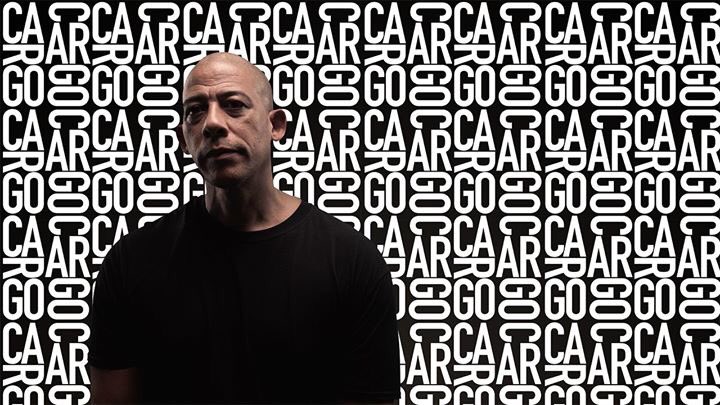
In part two (coming soon) Lawrence discusses Change and what changes we need to see (and make) to make a fairer and more equal future for us all.

